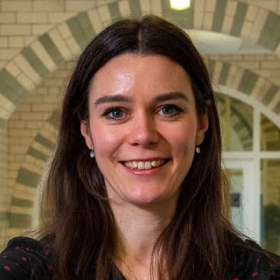It’s Mental Health Awareness Week in the UK, followed by Dementia Action Week next week. So what better time to focus on the mental health of carers for people with dementia and older adults?
When we talk about carers, we often refer to unpaid carers – so family and friends who provide unpaid, informal care to support the person with daily activities, such as washing, dressing, and cooking, taking them to day care centres, and generally supporting and caring for them in their daily life. According to the Alzheimer’s Society, there are an estimated 700,000 unpaid carers across the UK caring for someone with dementia. Considering the number of people living with the condition is estimated to reach and exceed 1 million by 2025, the number of unpaid carers is only going to rise.
In addition to unpaid carers, there is a vast social care workforce which is looking after people with dementia – including home care and care home staff, as well as paid carers working in community care facilities such as day care centres and support groups. There are over 1.5 million people working in adult social care in the UK, which includes paid carers for other groups than dementia.
We know that carers – whether paid or unpaid – face an incredibly demanding job. Unpaid carers are seeing their relatives or friends changing from a person they have known for many years or often decades into someone who may be unable to cook, changes their behaviour, and forgets things. This can take a huge emotional toll on unpaid carers, especially considering the sheer number of hours they put into caring – an estimated 1.3 billion hours in the UK each year!
As we have also seen during the last 2+ years, the pandemic and its impact on care has only increased job demands for paid dementia carers. Our care home research during the pandemic for example has highlighted how providing care for people with dementia living in care homes has changed, without any clear guidance (https://link.springer.com/article/10.1186/s12877-022-02822-0). This in turn has had severe impacts on the emotional well-being of care home staff, as well as the well-being of residents and unpaid carers.
But who cares for the carers? We know that the social care sector in the UK is sadly requiring a great deal of financial injections and general support, to enable its workforce to enjoy their jobs more and stay in their jobs because they want to. We also know of the many unpaid hours of care that families and friends provide. However, as our recent COVID-19 research has shown, it seems that carers just aren’t supported well.
To understand just how paid and unpaid carers of people with dementia and older adults are supported for their mental well-being, I’ve received funding from both the University of Liverpool Policy Support Fund and the NIHR. As part of this overall 18-month project, which is open to recruitment now!, we will remotely interview unpaid and paid (home care and care home staff) carers, and conduct focus groups. We will ask participants about their caring and working experiences, their mental health and well-being, and whether they receive or could receive any support for their mental health needs if they wish to.
If carers aren’t adequately supported, it will inevitably impact on the person cared for. What is hopefully going to come out of this research more is the fact that carers need to be considered in their own right, not only as care providers but as individuals with their own needs. Findings from this study will inform a targeted mental health support intervention for carers.
So, whether during Mental Health Awareness Week or during any time of the year, if you are a carer or know someone who is, take care of your or their mental health, because caring can be demanding and we all need a break sometimes and someone to talk to. If you want to find out more about our research into dementia and mental health, or if you would like to take part in this particular study, please drop me an email (Clarissa.giebel@liverpool.ac.uk).

Dr Clarissa Giebel
Author
Dr Clarissa Giebel is a Senior Research Fellow at the University of Liverpool and NIHR ARC North West Coast. Clarissa has been working in dementia care research for over 10 years focusing her research on helping people with dementia to live at home independently and well for longer, addressing inequalities that people with dementia and carers can face. Outside of her day work, Clarissa has also organised a local dementia network – the Liverpool Dementia & Ageing Research Forum, and has recently started her own podcast called the Ageing Scientist.

 Print This Post
Print This Post






